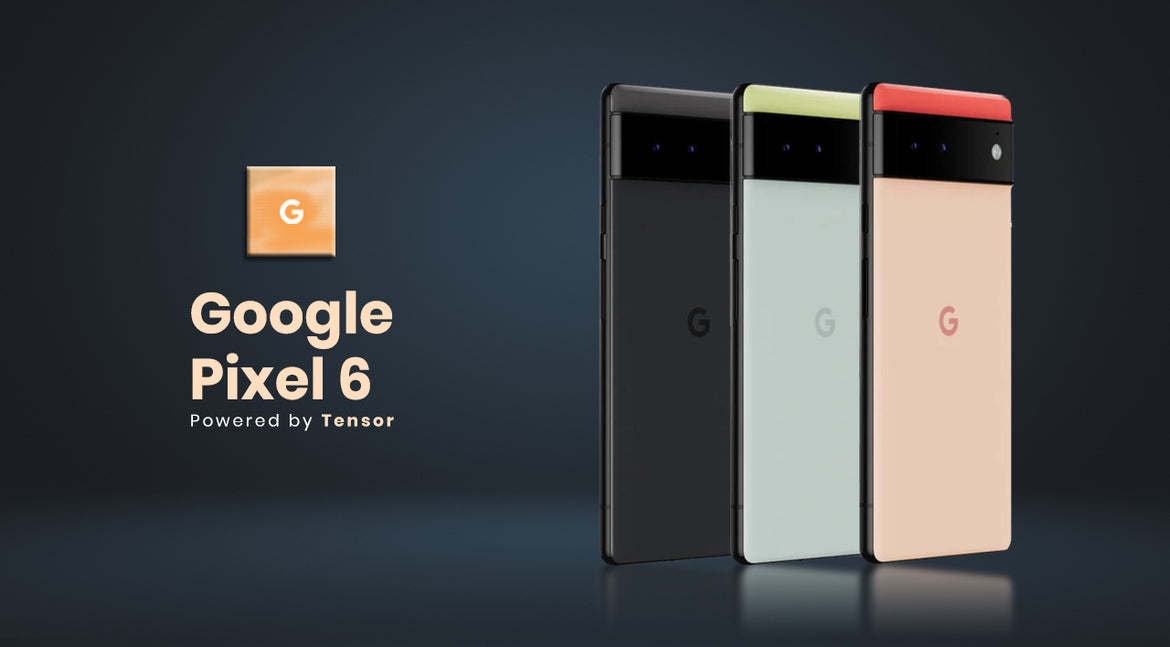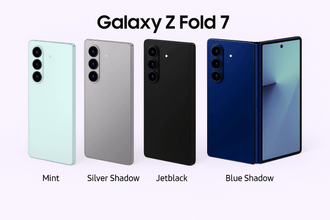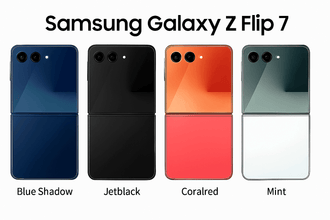
Tensor: Google’s Own Chip for Pixel 6 Line Up
- 12 Aug, 2021
Google Silicon ARM based system on a Chip (SOC) - Tensor
Google has had an interesting journey since the time it entered the smartphone space in 2016. It appears now Google is taking things a notch higher with the launch of Pixel 6 smartphone range this autumn which will include the company's first in-house chip design, Google Tensor. The integrated system of the chip will allow Google to move away from Qualcomm processors in its phones. Google phones previously used Qualcomm CPUs, but the company is now following in Apple's footsteps and designing its own chips.
The Tensor, Google Pixel 6, and Pixel 6 Pro specifications were not revealed at the time of Google's announcement, but will be when the phones are available. However, the company did reveal a few images of the new product line, confirming that the smartphones will include UI improvements as well as Android 12. Specifically, the Tensor will be a system on a chip (SoC), which means that the majority of the phone's computational hardware will be contained on a single integrated circuit.
Tensor is an important step from the company, as it looks to differentiate itself in a crowded smartphone field — something the company has admittedly struggled with in the past.
What are the benefits of one’s own chipset?

Tensor brings a whole new set of features, as well as updates to current ones, for users. Every piece of the chip is thought of and customised to run Google’s computational models. Tensor will allow us to use the Google phones we've always imagined - phones that improve over time while tapping into Google's most powerful features, all in a highly personalized experience. There are much more potential advantages of this processor and some of them could be discovered beneath.
Longer Software updates
One of the main reasons for Google launching its own chipset is providing longer software updates to the pixel smartphones just like Apple does for older generation iPhones. Google was restricted to provide new updates with the QUALCOMM chipset as it needed to be supported by QUALCOMM officially. Now with it’s own chipset google can optimize their software as long as they want.
Better Image & Video Processing
Google’s upcoming smartphone includes a massive redesign of the camera system on the rear. The Google camera in the Pixel smartphone is the perfect example of what Google’s computational photography can do and enables the Pixel smartphone to click and shoot better pictures and videos. The experience will be revolutionary once we have specialized mechanisms for the smartphone and leverage AI/ML to perform mundane tasks. Also, after a couple of generations of insisting that software/AI are the battlegrounds, the company has ditched its square design in favor of a broad, black bar, which appears to foreshadow an even bigger push toward better hardware and experience.
Better Battery Performance for New Google Pixel
With Google announcing its personal Tensor processor, one of the main questions is that how long will the battery of the smartphones last? The answer is that the battery is expected to last an entire day. Though we do not count on the Pixel 6 sequence battery life to instantly double, it surely has the potential to improve the battery efficiency and enhance it dramatically.
Upgrading Speech Recognition
In addition to the other benefits, Tensor will be crucial in boosting voice recognition and language learning. We know that the chip will be able to live transcript any video or movie that you’re streaming as you watch. This will be so accurate that you may not need to type from the keyboard and the entire processing is done through a new Speech on Device API. Although details are not entirely out, the announcement appears to be geared toward laying out what the future holds for a revamped Pixel team — and these kinds of focuses seem to align with what Google should be doing in the smartphone space: focusing on its AI and software prowess.
Google on Apple’s Path
Google has adopted a path similar to the one deployed by Apple and this appears to be the new standard. Apple's first-generation mobile processor, the Apple A4, was released in March 2010, paving the door for other tech companies to deploy in-house chipsets in their products. Controlling the hardware pipeline and bending software development to use the SoC to its full potential was the formula. There's no denying that the formula is a success. Apple did it first with the iPhone, then Samsung with the Galaxy series, finally Huawei with its Kirin CPUs and now, Google is taking the lead in shaping the next generation of technology products. In terms of utilizing the smartphone's operating system, an in-house processor certainly provides a substantial benefit. So, if you want to ensure that your tech items are used by customers for years, this is the way to go.
Conclusion
Google is making a full-fledged move into the field of artificial intelligence with their upcoming google chipset. They attempted to incorporate Android's compute power into a third-party chipset which was not meant for such a purpose. The solution: Develop an in-house chipset that can meet the requirements of the operating system.
Although it is unclear whether Google's Tensor chipset is set to match Apple's mighty A series of chips in terms of raw power, usage, and feature set, it is clear that the Tensor chipset is certainly a step in the right direction, one that not only holds a lot of potential for Google and its Pixel line-up, but also for the industry as a whole, as it will help spur healthy competition and, eventually, innovation.





























